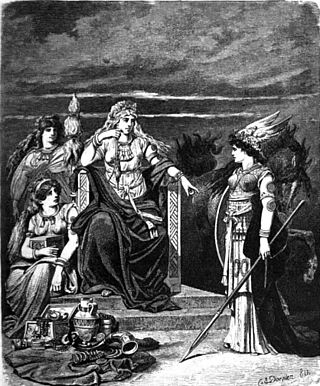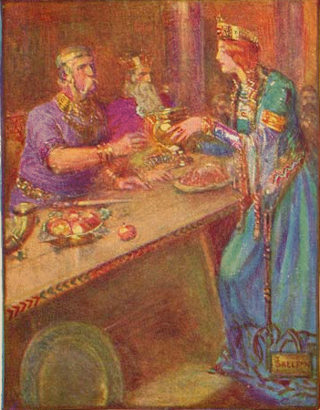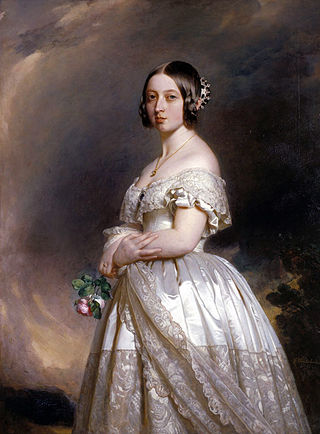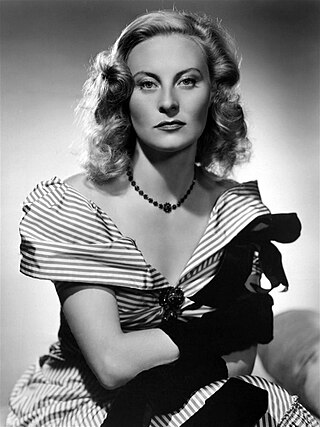Alexandra is a female given name of Greek origin. It is the first attested form of its variants, including Alexander. Etymologically, the name is a compound of the Greek verb ἀλέξειν and ἀνήρ. Thus it may be roughly translated as "defender of man" or "protector of man". The name Alexandra was one of the epithets given to the Greek goddess Hera and as such is usually taken to mean "one who comes to save warriors". The earliest attested form of the name is the Mycenaean Greek 𐀀𐀩𐀏𐀭𐀅𐀨, written in the Linear B syllabic script. Alexandra and its masculine equivalent, Alexander, are both common names in Greece as well as countries where Germanic, Romance, and Slavic languages are spoken.

In Norse mythology, Freyja is a goddess associated with love, beauty, fertility, sex, war, gold, and seiðr. Freyja is the owner of the necklace Brísingamen, rides a chariot pulled by two cats, is accompanied by the boar Hildisvíni, and possesses a cloak of falcon feathers. By her husband Óðr, she is the mother of two daughters, Hnoss and Gersemi. Along with her twin brother Freyr, her father Njörðr, and her mother, she is a member of the Vanir. Stemming from Old Norse Freyja, modern forms of the name include Freya, Freyia, and Freja.

Frigg is a goddess, one of the Æsir, in Germanic mythology. In Norse mythology, the source of most surviving information about her, she is associated with marriage, prophecy, clairvoyance and motherhood, and dwells in the wetland halls of Fensalir. In wider Germanic mythology, she is known in Old High German as Frīja, in Langobardic as Frēa, in Old English as Frīg, in Old Frisian as Frīa, and in Old Saxon as Frī, all ultimately stemming from the Proto-Germanic theonym *Frijjō. Nearly all sources portray her as the wife of the god Odin.
Astrid is a given name of Scandinavian origin, a modern form of the name Ástríðr. Derived from the Old Norse Ássfriðr, a compound name composed of the elements áss and fríðr.
Aanya, Anya or Anja is a given name. The names are feminine in most East European countries and unisex in several African countries.
Natasha is a name of Slavic origin. The Slavic name is the diminutive form of Natalia.

Wealhtheow is a queen of the Danes in the Old English poem, Beowulf, first introduced in line 612.

Victoria is a feminine first name. It is also used as a family name.

Michelle is a given name, originally a variant of Michèle, the French feminine form of Michel, derived from the Hebrew name Michael meaning "Who is like God?". The usual Latin feminine form of the name was Michaela, with Michael the vernacular form for both men and women. The name was given in reference to the archangel Michael, a saint of the Roman Catholic Church. The usual French feminine form of the name was Micheline. The name Michelle was rare until the 20th century. It became a popular name in France and later throughout the Anglosphere after 1930, popularized by French-born film actress Michèle Morgan, who was born Simone Roussel. The name was further popularized by the 1967 hit Beatles song Michelle, Ma Belle. The name peaked in usage for American girls in 1968, when it was among the five most popular names for newborn girls. The name has since declined in popularity but remains in regular use in English-speaking as well as French-speaking countries.
Julie is a popular Latin first name which originally comes from the Latin Julia which could mean youthful, soft-haired, beautiful or vivacious. It is the feminine form of Julius, and can be a pet form of Julia, Yulie, or Juliette.
Lindsay is a Scottish surname and given name. The given name comes from the Scottish surname and clan name, which comes from the toponym Lindsey, which in turn comes from the Old English toponym Lindesege for the city of Lincoln, in which Lind is the original Brittonic form of the name of Lincoln and island refers to Lincoln being an island in the surrounding fenland. Lindum Colonia was the Roman name of the settlement which is now the City of Lincoln in Lincolnshire. Lindum was a Latinized form of a native Brittonic name which has been reconstructed as *Lindon, which means "pool" or "lake" and refers to the Brayford Pool.

Bridget is an Irish female name derived from the Gaelic noun brígh, meaning "power, strength, vigor, virtue". An alternate meaning of the name is "exalted one". Its popularity, especially in Ireland, is largely related to the popularity of Saint Brigid of Kildare, who was so popular in Ireland she was known as "Mary of the Gael". This saint took on many of the characteristics of the early Celtic goddess Brigid, who was the goddess of agriculture and healing and possibly also of poetry and fire. One of her epithets was "Brigid of the Holy Fire". In German and Scandinavian countries, the popularity of the name spread due to Saint Bridget of Sweden.
Ida is a feminine given name found in Europe and North America. It is popular in Scandinavian countries, where it is pronounced Ee-da.

Laura is a traditionally feminine given name in Europe and the Americas, of Latin origin, whose meaning is a metonym for a victor, and an early hypocorism from Laurel and Lauren.
Cara is an Irish feminine given name meaning "friend". It is also an English, German and Italian language feminine given name from the Latin cārus meaning “darling, beloved, dear, loved one”. It is also a Danish, Norwegian and Swedish feminine given name that is an alternate form of Kara as well as a short form of Carola, Carolina, and Oscara.
Freya, or Freyja, is a goddess in Norse mythology.
Christina or Cristina is a feminine given name. It is a simplified form of the Latin Christiana, and a feminine form of Christianus or a Latinized form of the Middle English Christin 'Christian'. Short forms include Chris and Tina. The name is ultimately derived from the original Greek form of the name, Χριστίνα.
Camilla and Camila are feminine given names. They originate as the feminine of camillus, a term for a youth serving as acolyte in the ritual of ancient Roman religion, which may be of Etruscan origin.
Stella is a female given name. It is derived from the Latin word for star. It has been in use in English-speaking countries since it was first used by Philip Sidney in Astrophel and Stella, his 1580s sonnet sequence. Use might also have increased due to Stella Maris as a title for the Virgin Mary by Catholics. Alternately, it is a feminine version of the Greek name Stylianos, meaning pillar.
Tia is a usually feminine given name with diverse, unrelated origins from multiple cultures. It might have originated as a short form of names containing the word element tia or thea. The word tía is coincidentally the Portuguese and Spanish word for aunt. Some parents might have used the name in reference to the alcoholic beverage Tia Maria. Tiana might be an extended version of the name. Tia is the goddess of peaceful death in Haida mythology. Tia was also the name of an ancient Egyptian princess who lived during the 19th Dynasty. The meaning of her name possibly referred to royal status. In some cultures, including the Ancient Egyptian and Maori. Tia has also been used as a male name.







